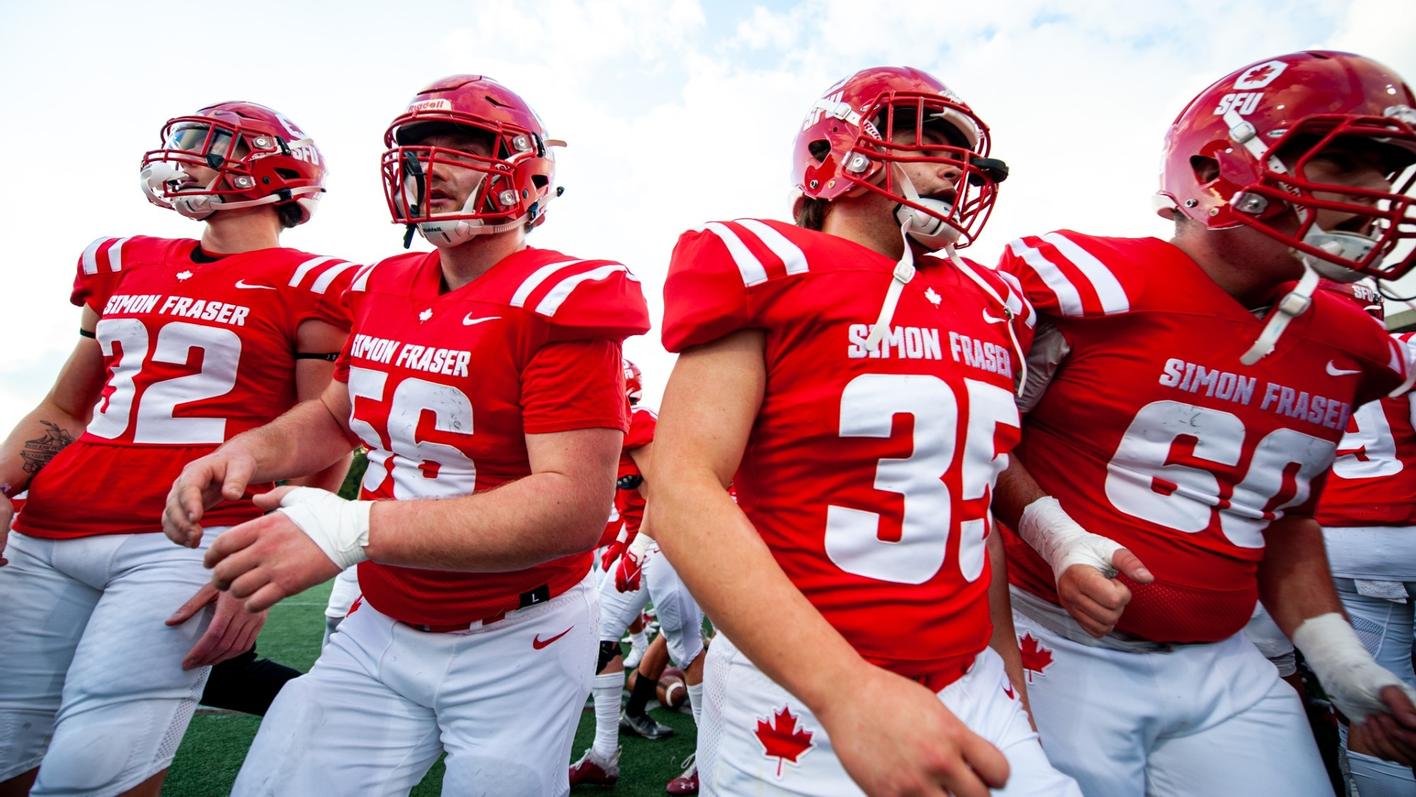
After an extensive review process, spearheaded by Bob Copeland, senior vice-president at McLaren Global Sport Solutions, the future of football at Simon Fraser University (SFU) appears to remain on unstable ground. Copeland was appointed as a special advisor in response to the severe backlash that ensued following SFU’s abrupt cancellation of the football program back in April. The painstakingly detailed report, based on over 240 interviews encompassing student-athletes, staff, alumni, and industry experts, reveals a complex scenario that SFU finds itself ensnared in.
The Initial Decision
The SFU administration raised many eyebrows with their sudden announcement in April that the football program, boasting a history dating back to 1965, was to be terminated immediately. The university cited the Lone Star Conference’s decision not to renew SFU’s membership post the 2023 season as a significant cause behind this resolution. This move was met with considerable resentment from the community, including notable alumni who even exited the school’s Sports Hall of Fame.
Community Reactions
Since the announcement, there has been a fervent campaign from various quarters including the SFU Football Alumni Society to revitalize the program. Their efforts were substantial, raising over $700,000 and garnering pledges amounting to $3 million, under the stipulation of the program’s official reinstatement.
Even the owner of B.C. Lions, Amar Doman, threw his weight behind these drives. However, players found no respite in court as their appeals were turned down, including an injunction application which sought to reverse the program’s discontinuation.
Findings of the Copeland Report
Copeland, after exhaustive consultations and evaluations, pronounced a grim prognosis for the university’s football endeavours in American leagues, including the NCAA or NAIA. His report emphasized that the most viable pathway for reviving SFU football was through affiliations with Canada West Conference and U Sports, albeit laden with a plethora of challenges.
The move to Canadian circuits is a double-edged sword. While offering a beacon of hope, it brings along a hefty tag of operational intricacies and escalating costs. Notably, Copeland stated that initiating such a transition would not only incur an initial sum of approximately $368,000 in application fees but also necessitate substantial amendments to the existing SFU athletic programs to comply with the Canadian standards, a procedure fraught with bureaucratic hurdles and financial constraints.
Infrastructure Challenges
Another concern raised is the logistic and infrastructure adaptations that would be needed to accommodate a larger Canadian football field, affecting other SFU teams, mainly track and field groups. This venture would demand expansive renovations at the Terry Fox Field, potentially spiraling into a financial vortex.
Response from SFU Authorities
SFU authorities, while recognizing the challenges outlined in Copeland’s findings, maintain a committed stance towards working diligently to foster a robust Athletics and Recreation program. SFU President, Joy Johnson, emphasized the necessity to lay a solid foundation for Athletics and Recreation, envisioning a strategic blueprint to carve a sustainable path forward.
While the authorities appreciate the community’s deep connection with football, they advocate a collaborative approach in reviving the program, involving contributions from a wide spectrum including students, alumni, and business entities.
A Road to Recovery?
Despite the mountain of concerns detailed in the report, there is a silver lining with a consensus rallying for a competitive and sustainable SFU football program rooted in Canadian soil through Canada West and U Sports affiliations. Copeland encouraged tapping into diverse funding channels including private donations and more aggressive fundraising targets, envisioning a collaborative financial bedrock for the football program’s resurgence.
The findings leave the SFU community at a crossroads, holding on to a beacon of hope, albeit faint, for the re-establishment of a football program grounded on home soil. Though a tough road lies ahead, with a fortified sense of unity and strategic planning, SFU football might just find its footing once again, fostered by Canadian spirit and nurtured through community collaboration.
As the SFU community stands on the brink of decisive action, one thing remains clear – the road ahead is long and winding, with the 2025 season seeming to be the earliest feasible timeline for a return to the field. It marks a pivotal phase where difficult decisions will steer the future course, setting a precedent in Canadian university sports history.
Continue the CFL Football discussions on our offical CFL Discord Channel


2 Comments
Leave a Reply
Cancel reply
Leave a Reply
Big Announcement: CFL Unveils Free Live Streaming Platforms
Get Alerts & Stay Connected
CFL iPhone AppCFL Android App











Michael Muldoon
September 19, 2023 at 3:30 pm
I’m not really sure I understand the infrastructure concerns. SFU played in the Canada West Conference under Canadian rules–with the bigger field–from 2002 through 2009. A look at an aerial view of Terry Fox Stadium on Google Maps makes it clear that the stadium can still accommodate the Canadian 150-yard by 65-yard field (110 yards plus 20-yard end zones, plus the extra 12 yards added to the width). At the very worst, they would have to “cut” the back corners of the end zones, similar to what is done at Molson Stadium at McGill, where McGill University and the Montreal Alouettes play. To me, saying there are infrastructure issues is simply a way of providing the SFU administration with an excuse not to reinstate the program.
Liam O’Reilly
September 21, 2023 at 9:29 pm
Why has no one suggested the Frontier Conference for SFU Football?
They have 9 teams for 2023-24 and I’m sure they would be happy to have 10 teams and a balanced schedule for 2024-25or the following year.
Yes, SFU has played games against this conference.
Travel? No more costly than Usports and they would NOT have to change the status of their other sports teams.
Just makes sense.
BC Lions owner Amar Doman and the Alumni group should take a look at this…or
maybe even SFU Athletic Dept.